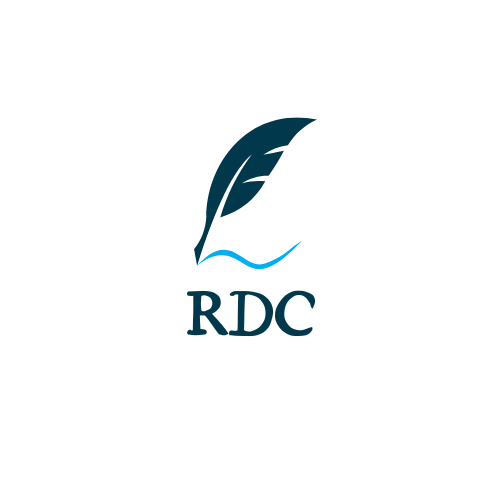As a writer, it’s important to label yourself. I don’t mean pigeonholing yourself into a single genre or committing to a pen name for the rest of your life—I mean labeling yourself a writer. Or an author. Or, if you’re in the early stages of your writing career (like I am), an emerging writer. For heaven’s sake, don’t tell people you’re an aspiring writer or you dream of one day being a writer. That just sounds lame.
I know we all hate to brag, especially when we haven’t been published yet and we’re still not sure our manuscript isn’t 100% crap. But I promise you, your career will progress much faster if you start taking it seriously and having some confidence in your abilities.
Dig for credentials (because you probably have them).
Many emerging writers struggle with confidence. Because they don’t have an agent yet, they have few or no publications to their name, or they don’t have a college degree in creative writing, they worry people won’t take them seriously. But many of these writers already have credentials—they just aren’t looking in the right places.
Once, when I pitched an agent at a conference, she asked if I was involved in a critique group. This took me by surprise. Of course I was in a critique group—in fact, I was the founder and longtime leader of my current one. I told the agent this, and she requested pages. I had never thought of my critique experience as a selling point (after all, I was trading critiques with fellow amateurs, not Neil Gaiman). But something as simple as a critique group can beef up your writing resume, because it shows you’re serious about your craft.
Your writing credentials don’t have to be prestigious to boost your chances with an agent or editor. Mine your history for any relevant experience, then highlight that in the bio section of your query letter, cover letter, or pitch. This experience could be a summer internship at a publishing house, a job at your college newspaper, membership in a writing organization, a mentorship with a published author, or honorable mention in a writing contest.
Depending on what you’re submitting, it may not be related to writing. For instance, when I pitched a nonfiction article on biomaterials, I mentioned my bachelor’s degree in materials science. When I submitted a retelling of a Japanese folk tale, I mentioned my five years of study in Japanese language and culture. Both got accepted. Play to your strengths; show the agent or editor why you are uniquely positioned to write what you’ve written.
Focus on your accomplishments.
Tell an agent or editor what you have achieved, not what you haven’t. Don’t say “I haven’t published anything yet” or “This is my first time querying.” Don’t play the pity card and hope they’ll take you under their wing, because they won’t. Instead of drawing attention to your lack of experience, skip to the experience you do have, and state it confidently. Act professional and sure of yourself, and the agent or editor will get a great first impression.
And if you really have no writing credentials to include, that’s okay. Keep your bio short and sweet: “I live in the Rocky Mountains, where I enjoy writing speculative fiction for children and teens.” When I submitted my first few short stories and poems—some of which got accepted—this is exactly what my cover letter looked like.
Let your writing speak for itself.
I’m a shy person, and confidence is something I’ve always struggled with. But I’ve found that, at least for me, it’s much easier to be confident on paper than in person. I’m able to exude confidence in my pitches, queries, and cover letters, when my hands would be shaking with nerves at a face-to-face meeting.
When submitting via writing, take advantage of the fact that the agent or editor can’t see how nervous you are. You have unlimited time to work on this piece of writing before sending it out, so polish it until it shines with confidence. Get help from family, friends, and critique partners if needed. Watch out for weak or uncertain phrases like “I think my book has relatively tight plotting, which is something you mentioned in your manuscript wishlist…” Instead, be concise and confident: “My book’s tight plotting may be a good fit for your wishlist.”
That being said, don’t get cocky. Don’t come across as a jerk or make your letter sound gimmicky. Above all, don’t try to be someone you’re not. When I’m writing this kind of letter, I imagine myself peeling away my outer layers of uncertainty, fear, and shyness. Underneath is a calm, collected professional—but still me. People can smell a façade from a mile away, and it’s a huge turnoff. So be yourself—just make sure you’re being your best self.
Confidence begets confidence.
What about the next step? What about after the agent offers representation, or the editor decides to buy your short story, or the magazine commissions you to write the nonfiction article? Your audition paid off; this is your callback. This is your time to shine.
Don’t thank the person on bended knee for taking a chance on you when no one else would. Don’t tell them “You won’t regret this!” Instead, act like you’re used to this, even if you’re not. Continue to communicate in a timely and professional manner. If you’re new to a step in the process (I didn’t know what an “author’s note” was until a magazine editor asked me to write one), it’s okay to ask questions. The most important thing is that you take the job seriously, do your best work, and act professional, so that this person will want to continue working with you.
If you take yourself seriously, you’ll start acting more confident in your writing career. And the more confident you act, the more confident you’ll feel. So take the first step, and label yourself a writer. Because you are.
